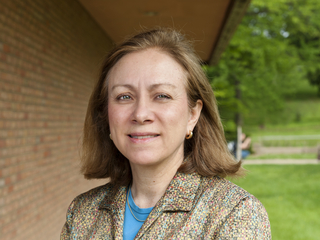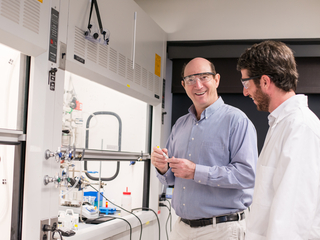 |
| Claire Welty |
The university and its professors have created partnerships that can improve environmental sustainability. For instance, Claire Welty, a professor of chemical, biochemical. and environmental engineering and director of UMBC's Center For Urban Environmental Research And Education, also has the post of associate director of research for the URBAN WATER INNOVATION NETWORK (UWIN). The latter was recently created through a $12 million cooperative agreement with the National Science Foundation (NSF).
Most of us are aware that climate change and extreme occurrences can affect water security, which, in turn, affects economic security. By creating UWIN, UMBC and thirteen other academic institutions, including University of Pennsylvania and Princeton University, can address the challenges that imperil urban water systems. They can then determine solutions that will add resilience to city water systems and prevent water shortage crises.
UMBC already has strong research and education programs which have focused "on stormwater management, water quality control, and and urban biodiversity". This academic base will add information that is valuable to the work of UWIN. Besides Ms. Welty, Andrew Miller and Christopher Swan, professors of geography and environmental systems, will also offer their knowledge and capabilities to the mission of UWIN.
At the same time, NSF has just announced an award of $20 million to the CENTER FOR SUSTAINABLE NANOTECHNOLOGY (CSN). This center explores how nanochemicals interact with with the environment and living organisms. Professor and chair of chemistry and biochemistry, Zeev Rosenzweig, is leading UMBC's participation in CSN, which also includes leaders from 13 other research institutions.
Nanotechnology involves very small scale materials, allowing manipulation of individual atoms and molecules. Even though these materials are utilized in many different products, it is unknown exactly how these materials interact with the environment. Mr. Rosenzweig said, "This research center will greatly impact society by preparing next generation nanomaterials that retain high function, while being safer for human health and the environment."
 |
| Zeev Rosenzweig (left). |
 |
| UMBC's campus. |


No comments:
Post a Comment